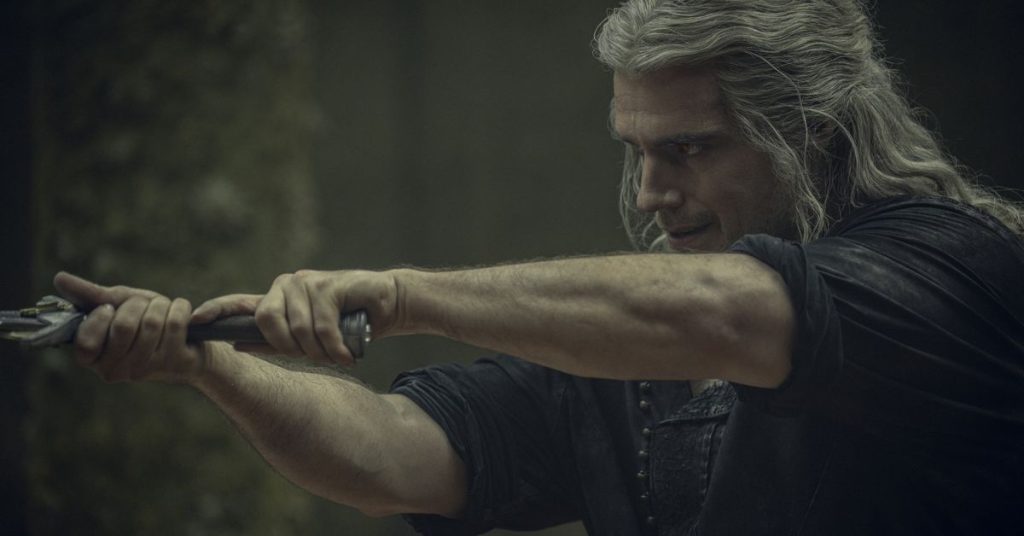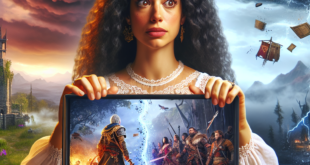
We’ve only had two seasons of The Witcher on Netflix, but the show has already had somewhat of an identity crisis. It started off with a bang, with a big, bloody debut that showed exactly why the books and games before it were so beloved. It was dark yet funny, full of action, sexual tension, and all kinds of cool monsters — plus an excellent Henry Cavill as the gruff and lovable Geralt of Rivia. Season 2, meanwhile, lost some of that personality as it attempted to tell a more grand — and typical — fantasy story while also deviating significantly from the books. Things got even more off-track with the prequel Blood Origin.
Now we have season 3, which is being split into two volumes and which will mark the end of Cavill’s run as Geralt (the show will continue with Liam Hemsworth in the lead role). The first volume doesn’t exactly get away from the epic story the show is trying to tell — there are still warring factions and magical forces and questions about the nature of the world itself — but it returns most of the focus where it belongs: on the main cast of Geralt, Ciri, and Yennefer. More importantly, the show is fun again, where the big narrative beats don’t get in the way of all the blood and jokes.
At the outset of season 3, things haven’t changed all that much: everyone on the entire Continent still seems intent on finding Ciri (Freya Allan), a young princess with mysterious powers that could be the key to uniting a vast, violent world. Kings, mages, elves — everyone wants to find her for their own nefarious reasons. Despite this, she finds herself in a somewhat cozy situation living with Geralt and Yennefer (Anya Chalotra).
They’re on the run, constantly moving at the slightest sign of trouble, but they’ve also settled into a comfortable kind of familial routine. They sit around sharing meals and washing dishes, while Yenn — who finally has her magic back after being tragically defanged last season — tries to teach Ciri how to control her powers. After two seasons of nothing but death and betrayal, it’s nice to see the three living a calm, happy life.
Of course, that doesn’t last long.
Outside forces compel the little family unit to split up. Yenn takes Ciri to the magic academy Aretuza in hops of both helping her learn and keeping her safe, while Geralt goes after Rience (Chris Fulton), a fire-wielding mage who is after Ciri at the behest of a mystery benefactor.
There’s still a good amount of political maneuvering and treachery to keep track of. The remaining elves are divided over who to align themselves and the best way to get revenge on humanity; the kingdom of Redania — thanks to cunning spymaster Dijkstra (Graham McTavish) and his partner Phillipa (Cassie Clare), who spent most of season 2 as an owl — finds itself in the thick of everything; the Brotherhood of Sorcerers is struggling with infighting; and the White Flame (Bart Edwards) continues his quest to unite the entire Continent under his rule. That’s not even counting characters who find themselves in completely new situations, like the exiled mage Fringilla (Mimi Ndiweni), who is now an always-drunk poison tester.
But thankfully, unlike more recent forays into the Witcher universe, all of that background is told concisely and entertainingly and sits largely in the, well, background. This lets the show bring its focus back to the main cast — and this time, it does right by those characters. Geralt remains a sullen yet surprisingly lovable centrist as always, but Yenn has returned to being a powerful, defiantly independent mage, and Ciri is coming into her own and is finally more than just a damsel in distress whose power is activated by screams.
This shift is perhaps best exemplified by Jaskier (Joey Batey), who devolved into a sullen rock star in season 2 but is back to being a free spirit who makes far too many jokes, usually at the wrong time. This time around, he has a rivalry with another bard and a delightfully intense crush on a prince. He feels like Jaskier again — despite the hair and eyeliner.
And while there is a lot going on, volume one of the new season is essentially about one thing: revealing who the new, big bad villain is. Getting there involves all kinds of typical witcher-y things: lots of fights with terrifying monsters (including one particularly grotesque creature that wouldn’t be out of place in Akira or Inside), fancy parties full of sexual tension, some truly messed up betrayals, and Geralt being a smartass much to the frustration of the elite. But a lot of the fun comes from sussing out just who is the secret villain pulling a lot of the strings behind the scenes. The first batch of episodes ends with a party, which you see from various perspectives, forcing you — along with Geralt and Yenn — to sift through the lies, misdirections, and illusions while a band sings, “All is not as it seems.” I was genuinely surprised with the big reveal.
The producers of The Witcher have said the transition from Cavill to Hemsworth will be “quite flawless.” But even still, this season is an important sendoff for this version of the character — and it’s setting up this version of Geralt with a major showdown to go out on. At the same time, this season is also a return of form of sorts, bringing The Witcher back to the things that make it unique — it’s funny, bloody, and sexy. There’s even a bath scene, which is as Witcher as it gets.
Volume one of The Witcher season 3 is streaming now on Netflix. Volume two will be available on July 27th.

 Latest Breaking News Online News Portal
Latest Breaking News Online News Portal




